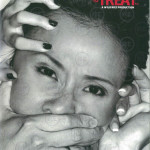Synopsis
Wills and Secession is the second play in Eleanor Wong’s landmark trilogy Invitation to Treat, which features Ellen Toh, an ambitious lawyer and gay woman.
At the end of the first play, Mergers and Accusations, Ellen has fallen in love with colleague, Lesley, and parted ways with husband-slash-best friend, Jon. In Wills and Secession, Ellen and Lesley now live in London, but when the play opens, Ellen is back in Singapore to attend her mother’s funeral. With her religious sister, Grace, she sorts through her late mother’s belongings.
When Grace’s husband, a pastor, and her family are called away on a long-term missionary trip, Ellen moves back to Singapore with Lesley to look after her father. Lesley, however, develops a terminal illness. Grace returns as Lesley nears her demise.
In the Repository
The programmes from the 2003 and 2004 stagings of Wills and Secession are available in the Repository.
Development
Eleanor Wong credits Ong Keng Sen, artistic director of TheatreWorks and co-director of Mergers and Accusations, for the push to write a sequel for Ellen. The following is an excerpt from an interview with writer Ng Yi-Sheng on 6 September 2019 when Yi-Sheng was conducting research for The Vault: Desert Blooms (2019):
“Wills [and Secession] was yet another Keng Sen intervention. I’m very grateful to Keng Sen for always being so manipulative. And I use the word “manipulative” in the most loving way.
“I was back in Singapore and working quite hard at an international law firm, but if I’m not mistaken, Keng Sen was the one who came to me and said, “Is there more to this story?”
“It was very, very, very hard to write, partly because of all the work I had, partly because it dealt with a topic that was more harmful than just love: family and religion.
“I still remember Keng Sen and his phone calls. We were at an office at Tung Centre, the glass windows facing into the secretarial pool, and somewhere in the middle of the day, 3 or 4 in the afternoon when he’d first woken up, he’d call and say: “El, what are you feeling? What is it about this scene?”
“And at the end, I’d be blubbering. I’d close the door, bring down the blinds. He’d do the El-whispering and make me cry, and three pages would come out. So it was a troubled birth that one.”
First Staging
Wills and Secession was first staged by TheatreWorks from 14 to 21 Sep 1995 at the Jubilee Hall, Raffles Hotel, under the direction of Ong Keng Sen.
Tan Kheng Hua and Koh Joo Kim reprised their roles as Ellen and Lesley respectively, and Claire Wong joined the cast as Ellen’s sister, Grace.
The set featured an installation of over 3,000 empty whiskey bottles, designed and created by Susie Lingham.
In her 2019 interview with Yi-Sheng, Eleanor recalled that she and the production team were worried that Wills would be shut down if audience members were to complain about the play’s handling of religion. The production received an “R(A)” rating from the authorities, but according to Eleanor, the rating was not for salacious content. Writing in the programme, Eleanor says,
“If you came for sex or violence, you’ll probably be disappointed… Instead, it’s family and faith. The F words that (to me, at least) make this an R(A) play.”
Wills was subsequently restaged in 2001 by TheatreWorks as part of a double bill, in 2003 as part of a triple bill by Wild Rice, and in 2004 as part of a Mandarin double bill by Toy Factory Productions.
Responses
“The work takes the lesbian identity of the two women [Ellen and Lesley] as a given and focuses largely on the issue of mortality, as Ellen comes to terms with Lesley’s terminal illness. Lesley serves as a conduit for repairing Ellen’s damaged relationship with her family, and by the end of the play Ellen has reached a higher level of truth and integrity in her most vexing relationship – the one between herself and her religious sister. Thus the play is more about mortality and the fragile but fundamental bonds between siblings than it is about Ellen’s identity as a lesbian.
[…]As with Mergers and Accusations, the mature and confident handling of the lesbian identity of the play’s central character was not stressed in the promotional materials connected with the play’s production.
[…]Because the lesbian identity of the play’s central character is a purely personal matter and the play does not lobby for change or present any fundamental criticism of society, it falls squarely within established censorship guidelines. The way in which the play was framed for public consumption by TheatreWorks mitigated the potential explosiveness of the play’s content, neutralizing any possible perceptions that the play contains with it a radical social statement.”
Source: Queer the Stage by William Peterson. In Theater and the Politics of Culture in Contemporary Singapore (pp. 150-151). 2001: Wesleyan University Press.
On the 2001 staging by TheatreWorks:
“Indeed Ellen Toh here shares much of the limelight with her sister. One could even argue that WILLS AND SECESSION is really Grace’s play, for the play charts her evolution from a woman deeply uneasy with her older sister’s sexuality and spiritual apostasy to one who is able to accept and love both her sister and her partner for whom they are. More importantly, Grace is a highly nuanced character, not simply some pharisaic assistant pastor’s wife parroting the party line, functioning as a crucial balance to Ellen’s emotive rhetoric which sometimes borders on the casuistic.”
Jurisimprudence by Seow Yien Lein. In Flying Inkpot (24 Mar 2001)
On the 2003 staging by Wild Rice:
“After the bittersweet ending of Mergers, Wills takes on a deeper, more pain-wrought tone. Sibling rivalry and resentment eventually tumble out in a hospital waiting room. But there is reconciliation and acceptance to be had. There is a moving moment near the play’s end, when Grace says family is there to ‘inconvenience and impose’.”
Source: Doublebill is double the treat by Clara Chow. In Straits Times (7 April 2003).
“The play is pensive, broken by sudden releases of tension, operating on an emotive as well as intellectual level that made the rich multi-layered dynamics of the script possible. Fraught with stillness, silence and tiredness, with missed chances and angry disconnections, it dealt with lost desires, lukewarm touches, obligations and a grudging acceptance of life and death. More than being just about the ghosts of the sisters’ childhood (wonderfully conveyed through bursts of song that delighted the audience), more than being about God or the belief in one, this play was about the reality of responsibility, about hurt that lasts, about the cruelty of disease.
“The script was honest, even confrontational, forcing one to feel less like a voyeur and more like a participant. The words spoken were raw and real and I found myself nodding in empathy as the lines were delivered, feeling the pain and crying the tears.”
Source: A Family Affair by Jolene Hwee. In Flying Inkpot (7 Apr 2003), https://tinyurl.com/y84oekxn
.
The Vault: Ties That Bind features two original short performances devised in response to Eleanor Wong’s Wills and Secession. The two performance responses are created by the graduating students of the NUS Theatre Studies TS3103 Theatre Lab, engaging with and responding to the text and context of Wills and Secession. Ties That Bind is presented by Centre 42 and NUS Theatre Studies, and supported by Teater Ekamatra. Click here to find out more.








